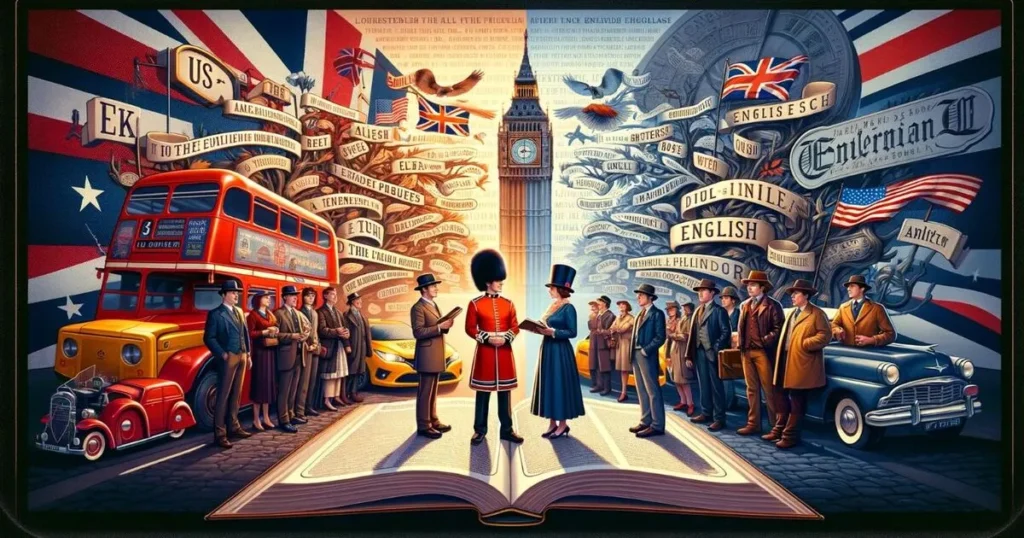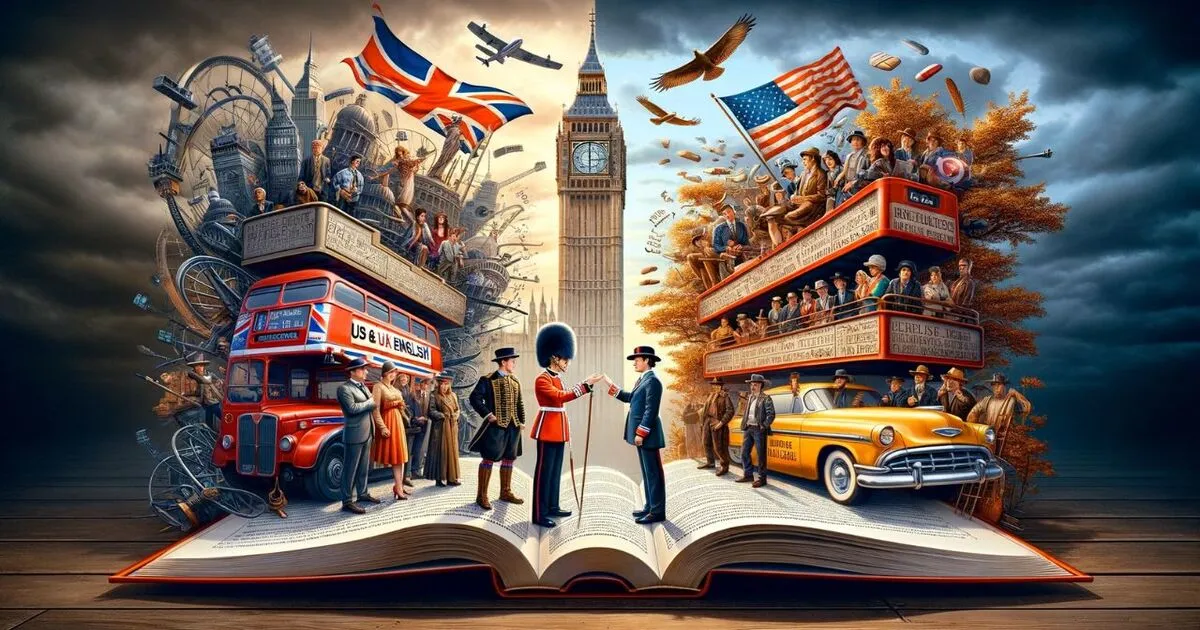Picture two friends, one from the United States and one from the United Kingdom, both speaking English. You might think they sound the same, but actually, they’re quite a bit of US and UK English differences! It’s like they’re playing the same song on different instruments.
The American might say “color” while the British friend says “colour.” It’s not just about adding letters; sometimes, they say the same words in their own special way.
It’s fun to think about how people from these two big places can speak English so differently. If you’re learning English at school, it’s cool to know about these differences. It’s not just about spelling; it’s about how words sound and how they’re used in sentences. It’s like a secret language within a language!
So, let’s pretend we’re going on an adventure across the ocean, learning all about these interesting differences in English.
Whether you’re learning English for school, love languages, or are just curious, this journey will be fun and full of cool discoveries. We’ll see that even though people in the US and the UK both speak English, they do it in their own unique ways.
So come discover the secrets binding American and British English together though they sound oceans apart!

Top US and UK English Differences
1: American English is Older in Some Ways
Some think British English sounds fancier. But American pronunciations are old-fashioned. Early American settlers spoke English in colonial times. They pronounced letter “r” clearly in all words, saying “winter” with the r.
Later, richer British people started dropping r’s. They said “win-tuh.” This made them sound posh so everyone copied it. But Americans kept pronouncing their r’s. Both changed over time. Yet American English stayed closer to Shakespeare’s rhyming style.
2: French Influenced British English More
English got fancy after 1066 when French rulers took over Britain. Kings and royals spoke French. So universities, courts, and snobby people used French words to sound smart.
This French style went into books and school. It shaped British English for ages, more than American. That’s why Americans don’t care about croissants as much! But some French ways of arranging phrases rubbed off on British speakers too. Fancy French left its linguine stamp on English in the UK.
3: Americans Simplified Spelling on Purpose
American and British spelling looks different in books. Noah Webster wrote an new American dictionary. He thought English spelling was silly so he fixed it.
He chopped extra letters like the u in “colour.” He changed re-ise word endings to ize instead. Webster wanted Americans to show their freedom from Britain through language.
Maybe he just liked how z looked better. But disagreement over letters like armour vs. armor remains between America and England today.
4: Americans Prefer Short Sentences
Americans speak shorter sentences. For example, British people say “I could do that” but Americans just say “I could.” American English leaves out helpful linking words more.
Questions like “Can you go to the store” get “I can” instead of “I can go.” It’s about speed and directness rather than lacking manners fully. Americans want to get their point across quickly without extra words.
British people tend to speak more politely and formally on the whole. But context matters greatly too.
5: Regions Borrowed Different Words
Food words highlight language differences between American and British cultures well. From Latin America, Americans use “cilantro.” Brits took “coriander” from French during their history. Americans say “eggplant” and “bison” while Brits say “aubergine” and “buffalo.”
But the languages stay similar enough to understand each other. Borrowing local words just adds some national flavor. Different immigrant impacts also shaped American and British English over time after they separated. But shared words still outnumber uncommon ones.
Final Takeaway
Bringing Both Sides of English Together
American and British English weren’t always so far apart. At first they were nearly identical. Only after leaving England did America’s language change bit by bit.
But they come from the same roots in Old English before French or other languages added new flavors later on. Today technology lets new terms spread rapidly between all regions.
Understandable videos, songs, memes bridge continents. Cultural twists make language richer. Most vocabulary still overlaps despite some odd labels swapped based on habits.
Examining history reveals why respecting all dialects matters today. Accents connect more than divide English wherever it’s spoken.

